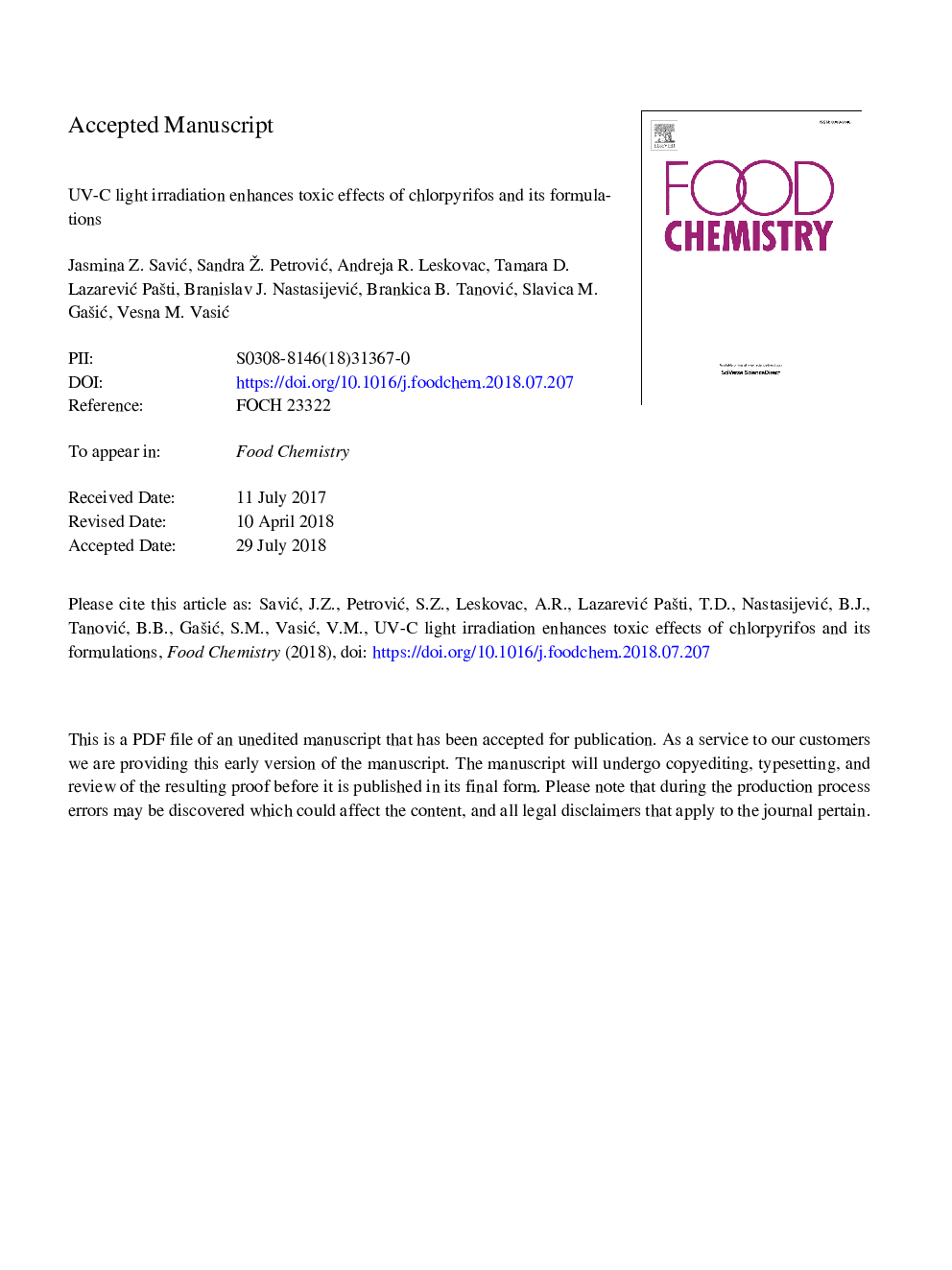| Article ID | Journal | Published Year | Pages | File Type |
|---|---|---|---|---|
| 7583949 | Food Chemistry | 2019 | 36 Pages |
Abstract
UV-C irradiation is widely used in the food industry. However, the health effects from dietary exposure to the irradiated pesticide residues retained in foodstuffs are underestimated. In this study, technical chlorpyrifos (TCPF) and its oil in water (EW) and emulsifiable concentrate (EC) formulations were irradiated by UV-C, and their photodegradation products were subjected to toxicity assessment, including determination of acetylcholinesterase (AChE) activity, genotoxicity and oxidative stress using human blood cells as a model system. Toxicity studies were performed using the chlorpyrifos concentrations in the range of those proposed as the maximum residue levels in plant commodities. TCPF, EW and EC photodegradation products induced DNA damage and oxidative stress, and their genotoxicity did not decrease as a function of irradiation time. Irradiated TCPF and EC are more potent AChE inhibitors than irradiated EW. Accordingly, the application of UV-C irradiation must be considered when processing the plants previously treated with chlorpyrifos formulations.
Related Topics
Physical Sciences and Engineering
Chemistry
Analytical Chemistry
Authors
Jasmina Z. SaviÄ, Sandra Ž. PetroviÄ, Andreja R. Leskovac, Tamara D. LazareviÄ PaÅ¡ti, Branislav J. NastasijeviÄ, Brankica B. TanoviÄ, Slavica M. GaÅ¡iÄ, Vesna M. VasiÄ,
